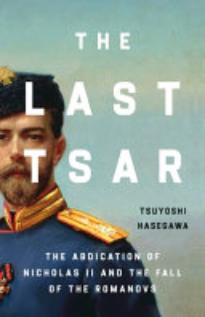2018 School Spending Survey Report
The Last Tsar: The Abdication of Nicholas II and the Fall of the Romanovs
COPY ISBN
VERDICT Best for serious Russian scholars. Readers new to the topic may also want to seek out Robert K. Massie’s four-book series about the Romanovs.
RELATED
ALREADY A SUBSCRIBER? LOG IN
We are currently offering this content for free. Sign up now to activate your personal profile, where you can save articles for future viewing




Comment Policy:
Comment should not be empty !!!